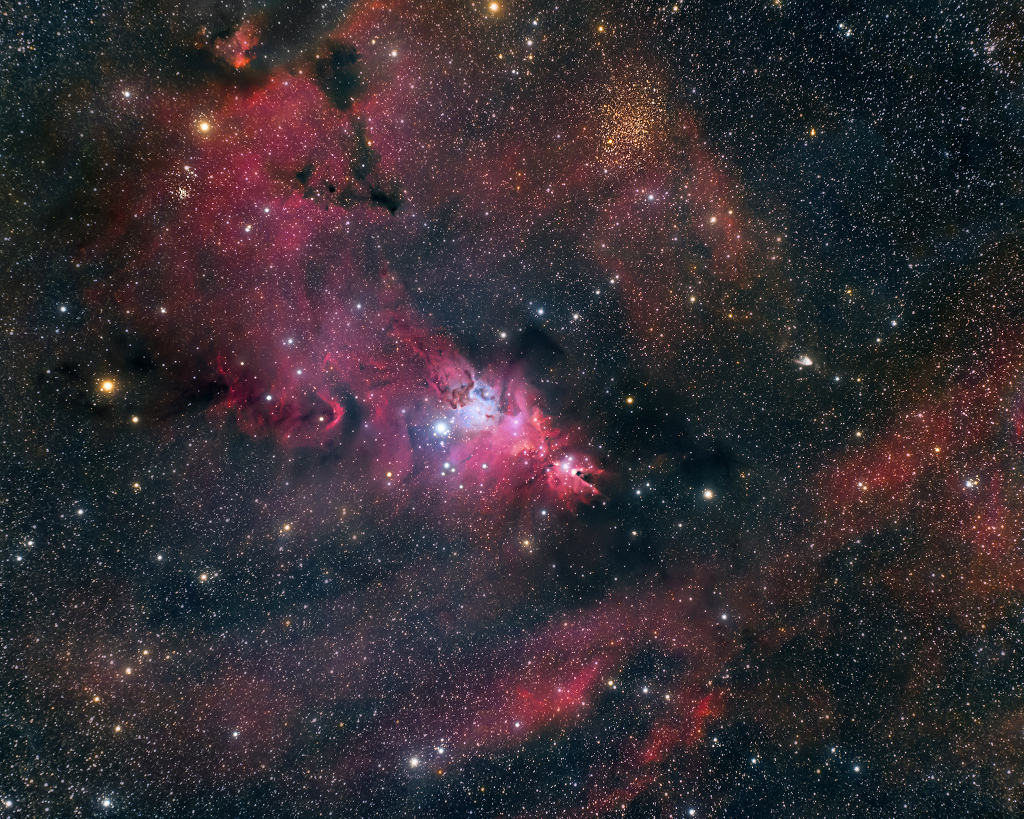
Interstellar clouds of hydrogen gas and dust abound in this gorgeous skyscape. The 3 degree wide field of view stretches through the faint but fanciful constellation Monoceros, the Unicorn. A star forming region cataloged as NGC 2264 is centered, a complex jumble of cosmic gas, dust and stars about 2,700 light-years distant. It mixes reddish emission nebulae excited by energetic light from newborn stars with dark dust clouds. Where the otherwise obscuring dust clouds lie close to hot, young stars they also reflect starlight, forming blue reflection nebulae. A few light-years across, a simple sculpted shape known as the Cone Nebula is near center. Outlined by the red glow of hydrogen gas, the cone points toward the left and bright, blue-white S Monocerotis. Itself a multiple system of massive, hot stars S Mon is adjacent to bluish reflection nebulae and the convoluted Fox Fur nebula. Expansive dark markings on the sky are silhouetted by a larger region of fainter emission with yellowish open star cluster Trumpler 5 near the top of the frame. The curious compact cometary shape right of center is known as Hubble's Variable Nebula. via NASA https://ift.tt/2SsmSJF
No comments:
Post a Comment